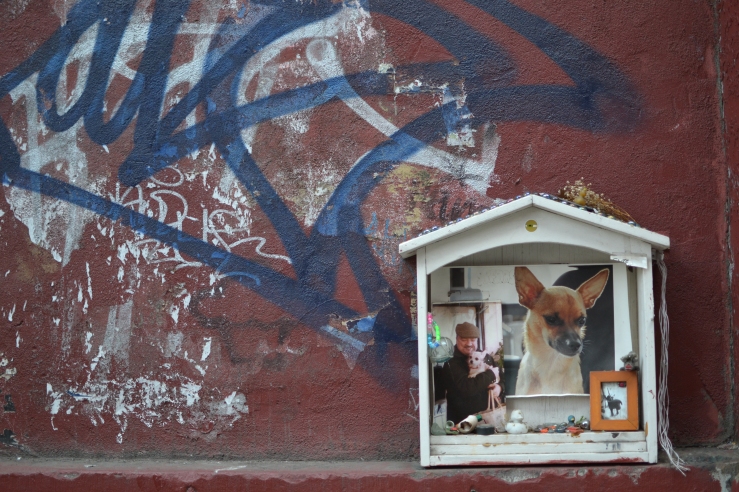
From 1995 through 2013, I worked at a non-profit organization that regularly took policy positions that would be considered progressive. During that period, the people of the United States grew more and more politically polarized. Through the lens of my job, I witnessed the birth of Fox News and MSNBC, the Bill Clinton/Monica Lewinsky affair, the Bush v. Gore decision, the ongoing outbursts of Rush Limbaugh, and many other milestones in the widening divide.
The letters, phone calls, emails, and online comments that we received every day could be brutal. The creepy messages that came from clearly troubled people—like the man who imagined a not-too-distant future where “sons are favored and daughters hated”—were sickening but fairly easy not to take personally.
But I struggled not to feel hostile toward the people who seemed level-headed and relatively polite yet disagreed so vehemently with our mission. Also troubling was the tendency of true believers on either side of the aisle to generalize about and demean the folks on the other side.
Here’s the stereotype I saw emerge of liberals as expressed by conservatives: Snobby, weak, always taking offense, quick to play the race or woman card, think everyone else is racist/sexist/homophobic/etc., want to take away all guns, godless, sexually immoral, baby killers, environmental dupes, want to destroy traditional families, prone to coddling poor people with other people’s tax dollars, eager to perpetuate class war, think big government can solve everything, and completely snowed by their leaders.
And here’s the stereotype that emerged of conservatives as expressed by liberals: Ignorant, naïve, fact-averse, reactive, blindly religious, simplistically patriotic, gun nuts, violent, bullying, judgmental, hypocritical, stubborn, racist/sexist/homophobic/etc., prudes, possibly closeted, insecure, immature, mean and spiteful, anti-science, don’t think poor people deserve help, nostalgic for an idealized/discriminatory past, think capitalism/tax cuts can solve everything, and completely snowed by their leaders.
At least we all have that last one in our column, right?
But seriously, facing the reality of this divide on a daily basis was wearying and downright disheartening. In order not to completely give up, I started trying to focus on the human characteristics that we all share, regardless of political persuasion. I was in search of those common threads that tie us all together.
One way to do this is to ask: What do people truly want? What do they most fear? I believe that these questions are just flip sides of each other. And you have to answer them in the purest way possible. You have to get at the answer behind the answer, behind the answer.
Here’s what I came up with…

All people want to believe that they are in control of nearly every aspect of their lives. Doing something and expecting a certain outcome is pretty much the bread and butter of our existence. Otherwise, life is chaos.
However, we do not have full control over our lives at all times, and that realization can be terrifying, or at minimum pretty friggin’ frustrating. When control is taken away from you in an area where you thought you had things covered, stress and anger are usually the result. Imagine working hard to improve your health only to discover that you have developed an illness that could not have been prevented. Or losing out on a promotion at work despite doing everything “right.” Or installing a security system in your home only to have it broken into the next day.
When these types of things happen, many people look for something or someone to blame. It sucks to admit that the world can be random and senseless. If we ultimately have little to no control, then why even bother? Humans want to bother, for the most part, so we often go looking for excuses as to why something went awry. And it’s through those excuses that we start to part ways.
People also want to be respected. They want to be treated with dignity, which means being seen, heard, and taken seriously. When someone is disrespected, laughed at, or looked down upon, it produces a reaction that can range from mild annoyance to outright rage. And again, it is our varying approaches to dealing with feeling small and insulted that separates us into different camps.
People like to think of themselves as special. Of course, we are all unique. But we are also tiny, fleeting parts of a vast universe. No one wants to think of themselves as a standard-model cog in the machine. We like to think that we all have something singular that we contribute. We want to count, to matter in some small way to others or the world. After all, what is love but evidence that someone finds us exceptional and distinct. I think we all worry at some point in our lives that we are not as smart or talented or strong or whatever as we think we are or hope to be. This is why people often insist that they are right even when that insistence is just making matters worse. Admitting that you are wrong, or just as fallible as everyone else, is scary and people have been known to avoid it at all costs.

Lastly, in addition to being special, everyone also wants to belong. Even if you are as non-conformist as they come, I’m willing to bet that at some point you have sought out people with whom you share a preference in movies, or music, or food, or body modification, or historical reenactments, or something.
If an individual were to seek out their tribe, no matter how small it might be, and if that tribe were to reject them…well, I can’t imagine a person who wouldn’t be hurt by that exclusion. Betrayal and abandonment can be seen as strong indicators that perhaps you weren’t worthy of being included in the first place. When this happens, people can strike out at those by whom they feel dismissed.
I believe that all humans share these characteristics, although in varying degrees and with varying strategies and skills for dealing with disappointment.
I try to remember this when I’m arguing with someone who disagrees strongly with me. I try to remember that we both want to feel in control of our lives, that we both want to be respected, and that we both want to feel appreciated for our uniqueness and embraced for our humanity.
We may have each traveled a different path, but we started at the same point.
Upcoming blog topics:
- The Four Ps
- Destructive distractions
- Radio writing assignment

[…] Shared human characteristics […]
LikeLike
[…] Shared human characteristics […]
LikeLike
[…] Shared human characteristics […]
LikeLike
[…] Shared human characteristics […]
LikeLike
[…] In an attempt to talk myself down from self-righteous mountain, I delve into what I believe are the root causes of stubborn, useless arguing. Whether I am lashing out in anger or assembling another set of indisputable facts, I think it goes back to the shared human desires and fears that I wrote about in an earlier post. […]
LikeLike